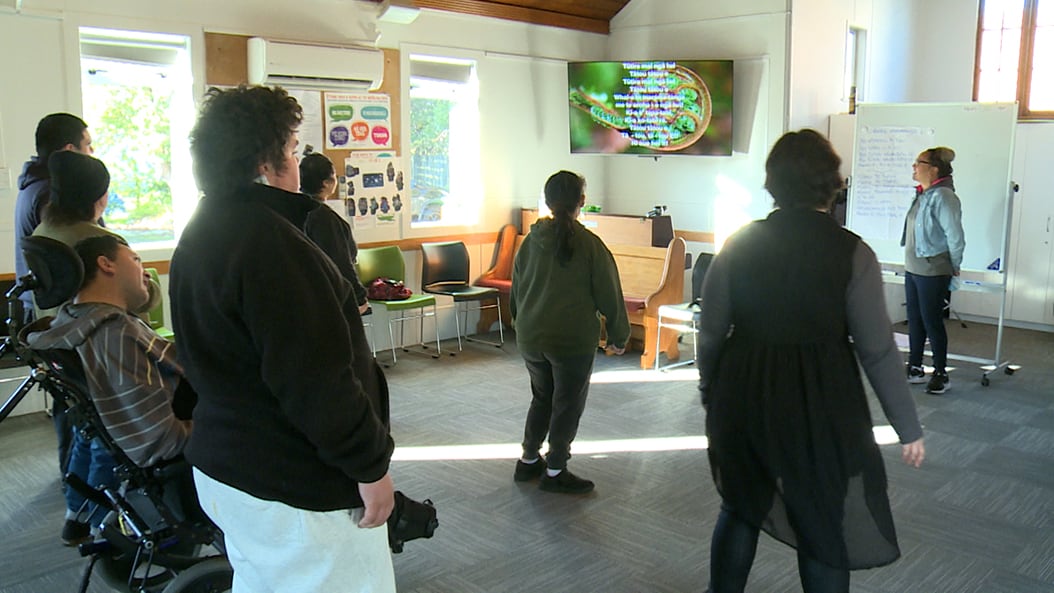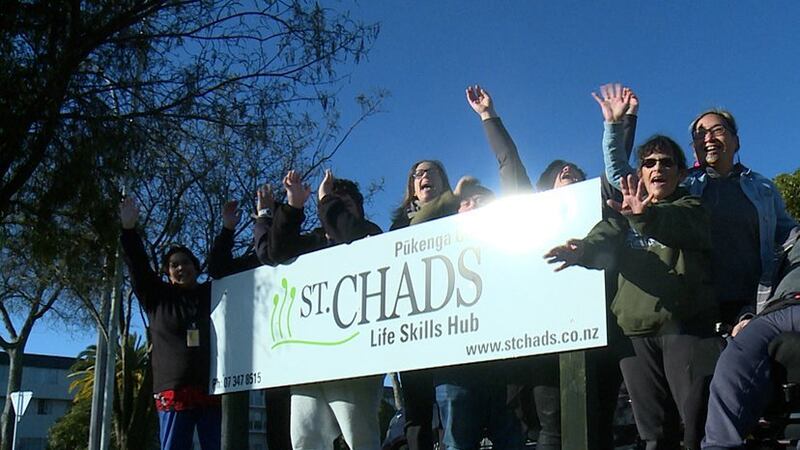After two years of preparation a caring service for people with special needs in Rotorua, Saint Chads, is teaching its clients the Māori language, Māori customs and a Māori worldview during their everyday activities.
Now Kiri Epapara, part of the support team, which has made Te Ao Māori a normalised part of the organisation, is now challenging male Māori to join as caregivers.
Part of their identity
Saint Chads was originally a thriving church in the early 1900s but since 1974 has been home to people with special needs and disabilities. Some 30% of the 70 members are Māori from various iwi.
Today they opened their day with a shared karakia in Te Reo Māori. They then showed Te Ao Mārama why Rotorua is known for its great entertaining nouse as they showed off to the cameras, singing various well-known waiata from Te Arawa and moteatea to add.
They each stood and shared their pepeha with much confidence and had a lot of fun doing it.
“It’s all about them having fun, participating, but also knowing this is their language, this is part of their identity. Special needs whānau matter just as much or even more,” Epapara said.

However, Epapara said it was no easy feat getting Te Reo Māori into the organisation.
“Being in an industry that is governed by an old society, Te Reo Māori didn’t have a place here. It has been challenging to go ‘hey, Aotearoa is changing. Why arent we?’”, Epapara said.
Mercia Yates, a parent of one of the whānau at Saint Chads has seen Epapara’s strong commitment over her four years with Saint Chads and after two years the go-ahead for Te Ao Māori.
“She has done the hard yards to get our Māori initiatives into this place for all of the community, for all of our people with special needs and disabilities,” Yates said.
American backing
None of these changes from a lack of things Māori to placing Te Ao Māori at its foundation would have been possible without the support of new operations manager Jebraun Clifford from the US, who has backed Te Reo Māori me ngā tikanga Māori 100%.
With Rotorua promoting itself as being a bicultural city, this has been the launch pad for Clifford to implement that bi-culturalism into Saint Chads.
“Yeah, a little bit of resistance but it is very important to us that we try to implement Te Reo Māori into our daily habits,” Clifford said.
Epapara is now calling out Māori men to join as caregivers for the special needs workforce. “They have skills that wahine can’t give. We are trying to balance that. We want to get more Māori and Pacific men to become kaiāwhina and become caregivers because there is not a lot of them out there,” Epapara said. Edwards also wants to see male Māori carers as they could be great role models for her male friends in the whānau.
“We have the wāhine supporting the men but sometimes the men need a tāne to lead and be a leader for them,” Edwards said.
Epapara is continuing a campaign this week via, her networks and face-to-face appointments to encourage Māori and Pacific men around the country to seriously consider becoming carers for special needs and disabilities and make it a career path as the need is high.

